- Advice
- Camping Tips
- Outdoor Survival
Outdoor Survival Tips and Tricks
Whether you’re hitting the mountains or embarking on your longest hike yet, the number one rule to adventuring success is to be prepared for all possibilities. The UK has some of the best beauty spots, with many of our Club Sites within easy reach. Don’t let their popularity and beauty fool you though, with unpredictable weather and unforeseen circumstances, the simplest of days out can take a turn if you’re unprepared. Here’s how to prevent finding yourself in a survival situation and what to do if problems arise.
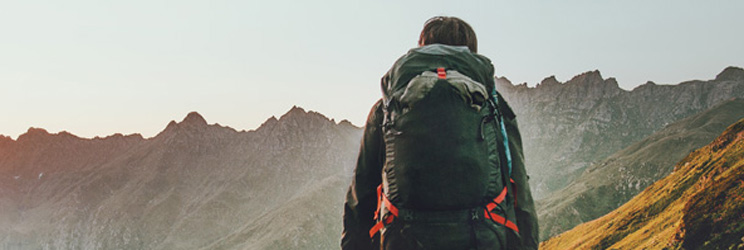
1. Plan
Always decide where you’re going to be walking in advance. Pre-planning gives you time to research, pack and prepare. Spontaneous trips are great fun but make sure you have a grab bag of essentials on hand if this is more your thing.
2. Make someone aware of where you’re going
Walking alone can be a fantastic experience for many people but always ensure someone knows where you’re planning to be and when. If you’re unable to make contact for any reason, you have someone to raise the alarm.
3. Make sure you’re kitted out properly
Check the weather before you go and consider what the climates likely to be like throughout your trip. Think about whether you’ll need extra layers or even a waterproof jacket. We’ve listed some of the best walking gear here as a guide to get you started.
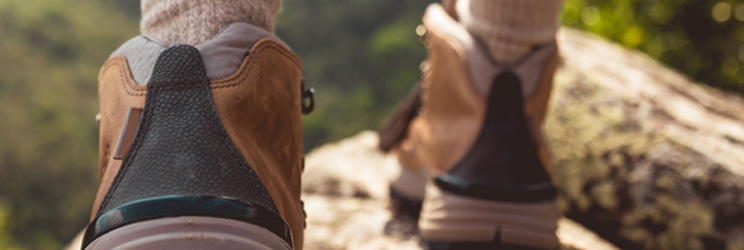
4. Ensure your walking partners are prepared
It can be frustrating if you get stuck due to lack of prep on someone else’s part. Have a chat before you set out to make sure everyone has what they need to complete the journey.
5. Prepare for the weather to change
Weather forecasts don’t always get it right, especially when you’re at altitude or venturing into the unknown. As above, having the right kit can go a long way in making sure you stay comfortable, which will allow you to finish your hike and get back to base safely.
6. Look after your feet
Never neglect your feet while out walking. You might think you can walk through the pain, but you’d be surprised how much a blister, or an uncut toenail can slow you down. Prevent blisters with well fitted walking boots, treat any pain at the source before it becomes problematic and take extra socks. A strip of duct tape stashed in your pack can come in handy for many foot-related injuries.

7. Prepare for an emergency
Most outdoor adventures take place without incident. However, you need to know what to do if you find yourself or someone else in an emergency. Do you know who to call if you can’t make it back to your base for any reason? Will emergency responders need any specific medical details? If you find yourself in a situation you can’t get yourself out of, always dial 999. You can carry a keyring with emergency contact details, add your emergency contact to your mobile and even register to the emergencySMS service which allows you to send a text to 999. Hopefully, you will never need to utilise those measures, but it’s best to be prepared.
8. Carry plenty of water
It’s not always easy or even possible to purchase extra water. Research this before you go and be prepared to carry enough fluids for your whole hike. Some people like to use a water hydration system, others like reusable bottles, and for longer journeys, there are many water purification options available.
9. Invest in a good backpack
A good backpack will keep your kit well organised, ensure your packs contents is dry and be comfortable to carry long distances. You can see our top backpack picks here.
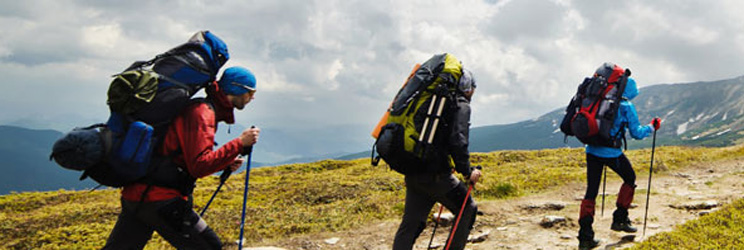
10. Keep your essentials in a dry bag
Your mobile phone, warm layers, chargers, fire starters and maps can all go inside a dry bag to keep them safe from the elements. There’s nothing worse than reaching for your phone, only to realise it’s wet.
11. Carry a charger
If you’re using your phone as a means of communication, you’ll want to make sure you have a way to charge it. You can buy rechargeable battery packs or even solar-powered chargers.
12. Pack a first aid kit
You can buy a readymade first aid kit or make your own. Things to include are a foil blanket, any prescription medication, blister plasters, a mix of fabric plasters, antiseptic wipes, pain reliever of choice, sun cream, and bandages.
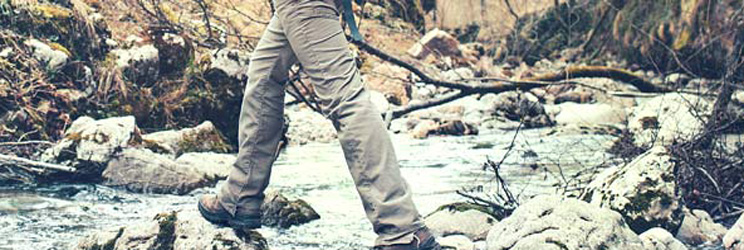
13. Don’t underestimate being cold
Once you’re cold, it can be hard to warm up again. Avoid cotton clothing as it takes a long time to dry. Instead, go for moisture-wicking base layers and ensure you have a few extra layers in your pack.
14. Consider taking an emergency shelter
A tarp and length of rope can be invaluable if you find yourself stuck overnight or needing shelter from the elements. Remember that the sun’s rays can become just as problematic as a snowstorm if you don’t have the right kit.
15. Ford carefully
If you find yourself with no choice but to cross flowing water, cross at a wide, straight section and check the water level beforehand. Unclip the waist and chest straps on your backpack in case you fall and most importantly, know when to say no and wait it out or call for assistance.
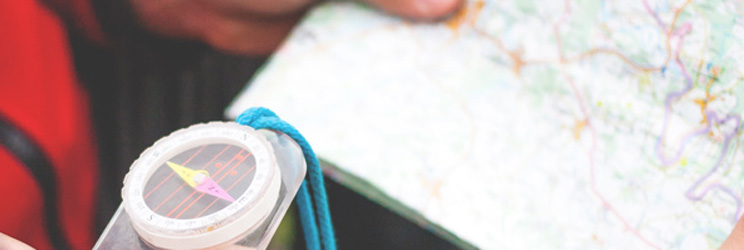
16. Avoid plants
Even the most skilled botanists could make poor judgement calls around plants in a survival situation. In the UK we have several poisonous plant varieties including foxglove, monkshood, poison hemlock and many more. It’s best to avoid touching and especially ingesting any plant life you come across. If you’re exploring with your dog, the same rule applies, and it’s good to know which plants to keep an eye out for. The Woodland Trust have a useful guide.
17. Learn how to start a fire
Hopefully, you’ll never need to start a fire out of necessity, but it’s a good skill to have regardless. Keeping your preferred fire starter in your pack is a sensible idea.
18. Carry a compass and know how to use it
Relying on your phone or handheld GPS device for navigation is usually fine, but do you have a backup plan? If you find yourself off course or lost, having a compass and map can get you back on track.
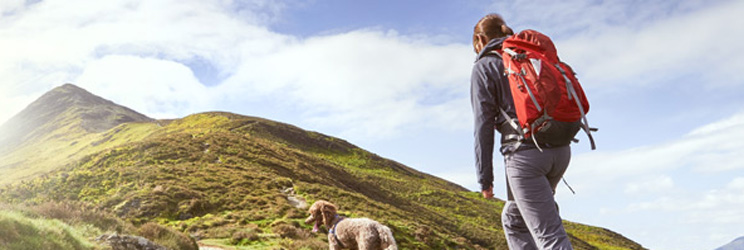
19. Be cautious around animals
The UK has a range of wild animals that are a delight to witness from a distance. Cows, deer, sheep and wild horses and ponies are just some of the larger animals you might see while exploring. On the smaller and more menacing end of the scale, there are bees, wasps, adders, and ticks which you’ll need to keep an eye out for and avoid where possible. Read our UK wildlife guide.
20. Stay calm
To get out of any situation safely, you’ll need to make sound judgement calls, and your thought process will be impaired if you start to panic. Its natural for your heart rate to rise and to feel out of control when something doesn’t go to plan, but one of the best survival skills you have is your mind.
21. Carry a panic alarm
These are useful for alerting anyone nearby to where you are if you’ve slipped or fallen. They can also be used in a pinch to scare off animals. Carry it in a zipped pocket or waistbelt so you always have it to hand.
22. Know your limits
Pushing yourself to walk further or climb higher than you have before is a major endorphin releaser, and why many of us fall in love with the outdoors. However, if you’re tired, feeling new pain or being affected by the elements you need to know when to accept defeat.
For more travel advice and inspiration, visit our holiday ideas.
